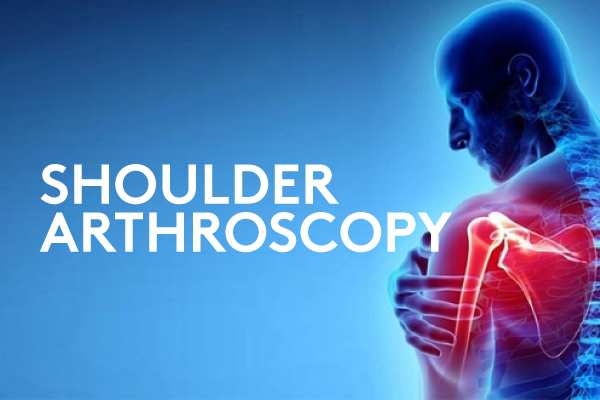Overview
Shoulder arthroscopy is a minimally invasive surgery used to diagnose and treat shoulder issues, such as bankart lesion rotator cuff tears or impingement. It requires small incisions, about the size of a keyhole, through which a camera (arthroscope) is inserted. The camera projects images of the shoulder joint onto a video screen, allowing the surgeon to identify and treat the problem using miniature surgical instruments.
Why is shoulder arthroscopy done?
Shoulder arthroscopy helps the doctor to find out and treat shoulder pain that has not responded to nonsurgical treatments.
What happens before arthroscopic shoulder surgery?
Before shoulder arthroscopy, your doctor will ask you about your health history. You’ll also need to bring a complete medication list. You may need to stop taking some of your medications a few days before your surgery.
Your hospital will give you specific instructions, including how long before your surgery to stop eating and drinking.
To check your health before your procedure, you also may need:
- Blood tests.
- A chest X-ray.
- Electrocardiogram.
- Echocardiogram.
What happens during shoulder arthroscopy?
Shoulder arthroscopy typically takes less than an hour. During the procedure:
- You'll be positioned in a semi-seated or side-lying position.
- The surgical team will prepare the area by shaving hair if necessary and applying antiseptic. Your arm may be secured to prevent movement.
- Fluid may be injected into your shoulder to inflate the joint for improving visibility.
- The surgeon makes a small incision to insert a tiny camera (arthroscope) to view inside the joint.
- Using the camera's images on a video screen, the surgeon identifies the problems and treat accordingly.
- After the procedure, the incisions are closed with stitches or bandages.
What happens after shoulder arthroscopy?
Shoulder arthroscopy is a daycare procedure, meaning you can go home the same day. The entire process usually takes less than an hour.
You’ll need to recover for an hour or two at the hospital after surgery. Your doctor will offer pain medication if needed. After that, can go home. It’s best if a family member or friend can spend the night with you.
Reference: my.clevelandclinic.org/health/treatments
Query Form

Lt Col (Dr) Md. Zamil Zaidur Rahim
Senior Consultant (Orthopaedics)
MBBS, MS - Orthopaedics
Fellowship in Arthroscopy and Arthroplasty (India)
Advanced training in Orthopaedic Surgery and Ilizarov (Turkey)



